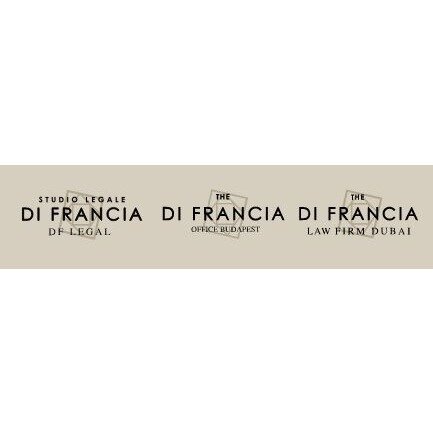Best Public-Private Partnerships (PPP) Lawyers in Bologna
Share your needs with us, get contacted by law firms.
Free. Takes 2 min.
List of the best lawyers in Bologna, Italy
About Public-Private Partnerships (PPP) Law in Bologna, Italy
Public-Private Partnerships, commonly referred to as PPPs, are collaborative agreements between public sector entities and private companies designed to finance, build and operate projects that serve the public interest. In Bologna, Italy, PPPs play a significant role in sectors such as infrastructure, housing, transport, education and energy. These partnerships are built upon detailed legal frameworks that outline proposals, selection processes, risk allocation, and contract management. The aim is to combine public oversight with private sector efficiency and innovation to deliver value to the community.
Why You May Need a Lawyer
Entering into or managing a Public-Private Partnership in Bologna involves navigating a complex web of laws, regulations and procedures. Legal assistance is often necessary in several situations, including:
- Drafting or reviewing PPP contracts to ensure compliance and protect interests
- Participating in public tenders or procurement processes for PPP projects
- Negotiating terms between private partners and public authorities
- Addressing disputes arising from PPP agreements
- Ensuring alignment with European Union directives and Italian national laws
- Securing financing and managing project risks
- Understanding tax implications and eligibility for incentives
- Changing, extending or terminating a PPP agreement
Whether you are a business seeking public contracts, a government official, or an individual with an interest in public infrastructure, consulting a lawyer ensures that your actions are legally sound and that you are fully aware of your rights and obligations.
Local Laws Overview
The legal landscape for PPPs in Bologna is shaped by Italian national laws, regional statutes and European Union regulations. Some of the key legal frameworks include:
- Italian Public Procurement Code: This is the main body of legislation that governs the establishment and management of PPPs, including tender processes, contract forms, and transparency requirements.
- European Union Directives: EU directives on concessions and public procurement are fully integrated into Italian law and must be observed for all qualifying PPPs.
- Bologna Municipal Regulations: The City of Bologna may have specific planning policies, urban development regulations and guidelines affecting PPP projects within municipal boundaries.
- Regional Laws of Emilia-Romagna: These may provide additional requirements for project selection, environmental assessment and public interest evaluations.
- Anti-corruption and Anti-fraud Legislation: Strict rules are enforced to ensure fair competition and transparency throughout PPP processes.
Understanding these laws is essential for successful participation in PPPs in Bologna, as compliance is rigorously monitored by both local authorities and independent regulatory bodies.
Frequently Asked Questions
What is a Public-Private Partnership in Bologna?
A PPP is a formal cooperation between a public authority and a private entity to deliver projects or services for public use, such as highways, schools or energy grids, within the city of Bologna.
Who can participate in PPP projects?
Both Italian and foreign companies, consortiums and sometimes non-profit organizations can participate in PPP tenders, subject to prequalification and compliance checks.
What laws govern PPPs in Bologna?
PPPs are regulated mainly by the Italian Public Procurement Code, relevant EU directives, regional Emilia-Romagna regulations and any specific municipal rules issued by the City of Bologna.
How are PPP contracts awarded?
PPP contracts are typically awarded through open, competitive procurement procedures designed to encourage transparency and fair competition, with detailed evaluation and selection criteria.
What are the typical risks in a PPP project?
Risks may include construction and operational risks, financial uncertainties, demand risks, as well as political, legal or regulatory changes during the project lifespan.
How are disputes resolved in PPP agreements?
Disputes are usually handled first through negotiation and mediation clauses specified in the contract, but may ultimately be settled through Italian courts or arbitration procedures.
Are foreign companies eligible for PPP projects?
Yes, foreign companies are generally eligible to participate in PPP projects in Bologna, provided they meet the relevant legal and technical requirements.
What is the duration of a typical PPP agreement?
PPP agreements in Bologna often last between 5 and 30 years, depending on the project size, complexity and financing arrangements.
What steps must be followed to initiate a PPP?
The process includes publishing a call for tenders, prequalification, proposal submission, bid evaluation, contract negotiation and the signing of the PPP agreement.
Is public consultation required for PPP projects?
Yes, many PPP projects, especially those affecting urban development, require public consultation as part of the planning and environmental assessment process.
Additional Resources
- Bologna City Council: The local authority responsible for urban planning, public works and authorizations linked to PPPs.
- ANAC (Italian National Anti-corruption Authority): Supervises public procurement and ensures compliance with transparency rules.
- Ministry of Infrastructure and Transport: National body overseeing major infrastructure PPPs and providing regulatory guidance.
- Chamber of Commerce of Bologna: Offers support and information for businesses interested in public tenders and local partnerships.
- Emilia-Romagna Regional Government: Source for regional laws, procedures and best practice guidelines on PPPs.
Next Steps
If you are interested in pursuing, participating in or have concerns about a Public-Private Partnership in Bologna, the first step is to document your objectives and gather all relevant information. Consult a legal professional specializing in PPPs to review your case. They can offer guidance on regulations, help prepare or review documentation, represent you during negotiations, and ensure your interests are protected throughout the process. Arrange an initial consultation to understand your options and chart a clear legal path forward.
Lawzana helps you find the best lawyers and law firms in Bologna through a curated and pre-screened list of qualified legal professionals. Our platform offers rankings and detailed profiles of attorneys and law firms, allowing you to compare based on practice areas, including Public-Private Partnerships (PPP), experience, and client feedback.
Each profile includes a description of the firm's areas of practice, client reviews, team members and partners, year of establishment, spoken languages, office locations, contact information, social media presence, and any published articles or resources. Most firms on our platform speak English and are experienced in both local and international legal matters.
Get a quote from top-rated law firms in Bologna, Italy — quickly, securely, and without unnecessary hassle.
Disclaimer:
The information provided on this page is for general informational purposes only and does not constitute legal advice. While we strive to ensure the accuracy and relevance of the content, legal information may change over time, and interpretations of the law can vary. You should always consult with a qualified legal professional for advice specific to your situation.
We disclaim all liability for actions taken or not taken based on the content of this page. If you believe any information is incorrect or outdated, please contact us, and we will review and update it where appropriate.














